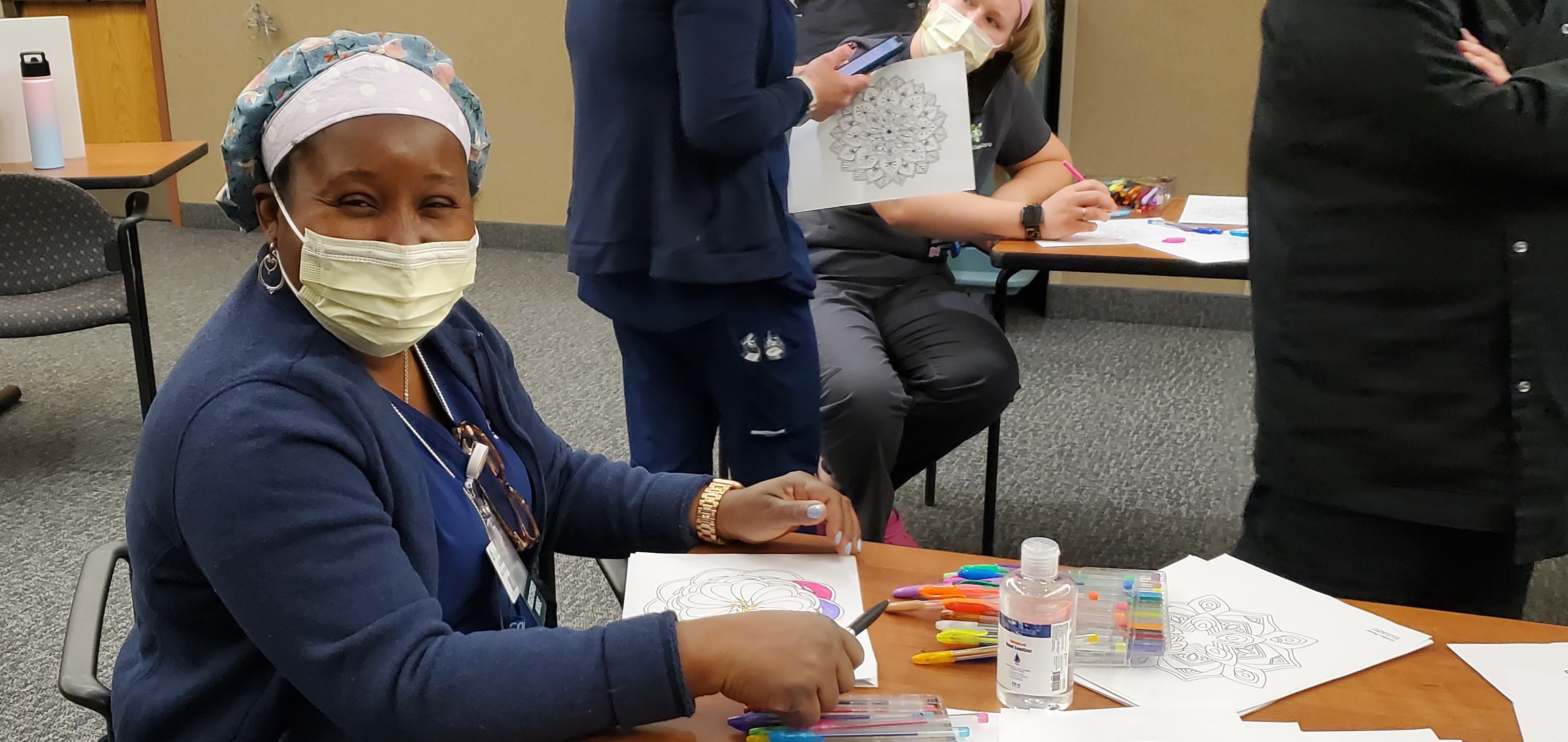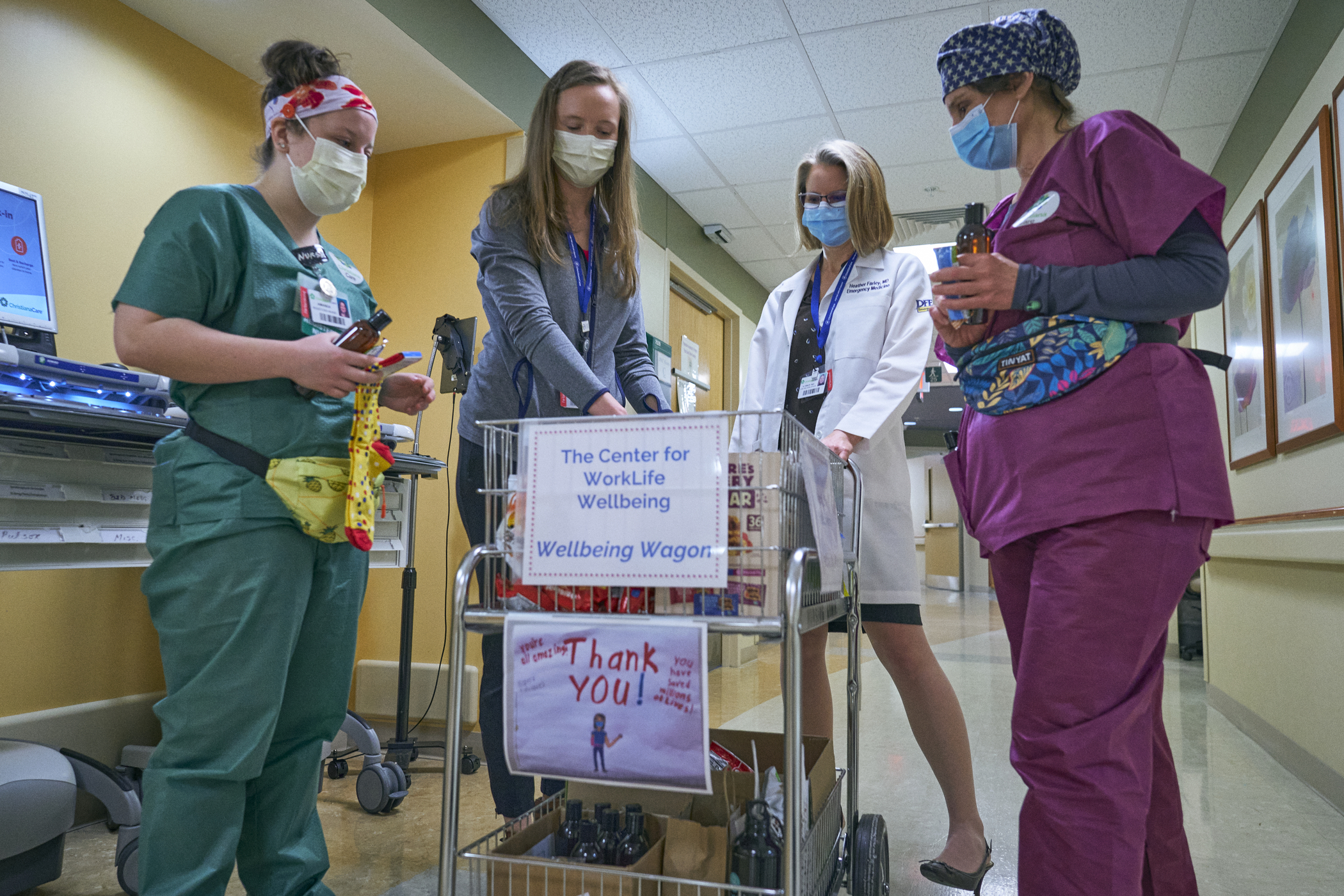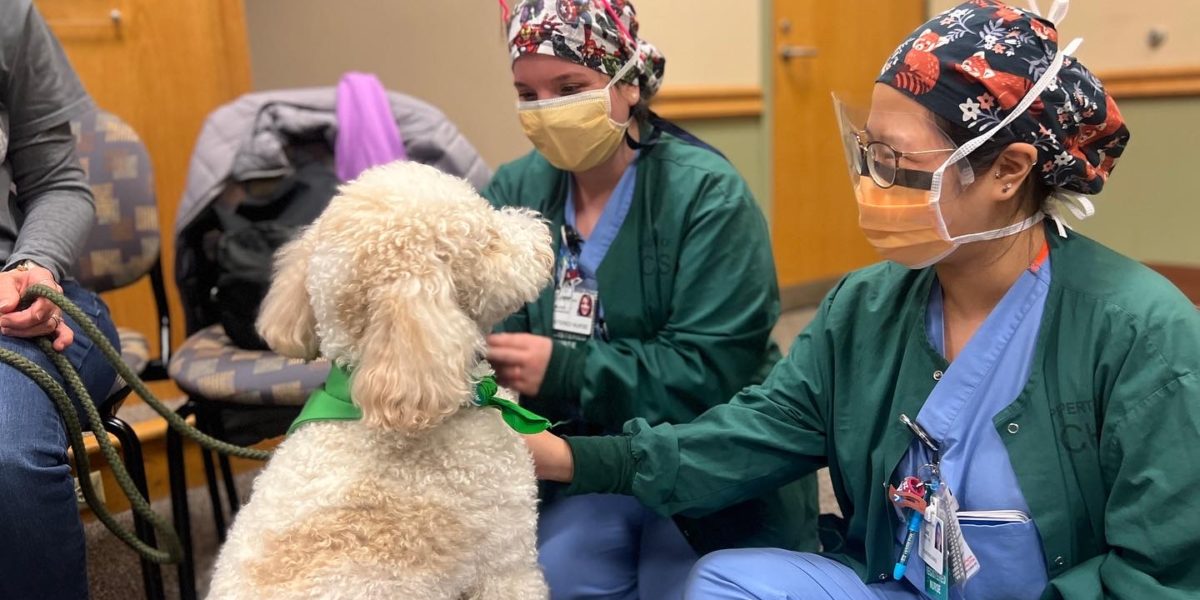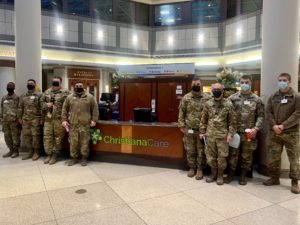To address the urgent needs of health care workers, ChristianaCare Chief Wellness Officer Heather Farley, M.D., MHCDS, FACEP, has partnered with prominent U.S. health institutions to develop the 2022 Healthcare Workforce Rescue Package.
This set of action steps provides health care leaders with evidence-based tools to support the well-being of physicians, nurses and other caregivers who are experiencing unprecedented fatigue and emotional distress as the pandemic rages on.

“Health system leaders are being bombarded with many different strategies on how to best address employee well-being and burnout,” said Farley, who heads ChristianaCare’s nationally recognized Center for WorkLife Wellbeing.
“They need to know what to prioritize so they can take action now. This rescue package, full of practical tips and resources, will enable leaders to build programs and take action so that caregivers have access to the love, support and resources they so need right now as they provide care to their patients.”

Tina Shah, M.D, MPH, principal of TNT Health Enterprise LLC, is one of the collaborators on the package. “Care teams can’t wait for long-term solutions,” she said.
“They need support right now for the trauma they’ve experienced for the past two years. This list tells leaders which critical resources they need to have in place immediately, even as they are planning for longer-term changes.”
The Rescue Package recommends that leaders and organizations focus on five key action items:
- Action Item 1: These are non-normal times: Adjust expectations.
Equip health care providers with more flexibility and autonomy by using crisis documentation protocols, identifying documentation that can be paused or eliminated and temporarily adjusting quality and patient experience goals. - Action Item 2: Get rid of stupid stuff.
Partner with clinicians to identify and remove low-value work through rapid improvement processes, such as minimizing inbox notifications, simplifying workflows and eliminating unnecessary mandatory training requirements. - Action Item 3: Get radical to shore up staffing.
Equip frontline teams with the help they need, such as creating new types of shifts to fit care needs, and redeploying non-clinical staff to support frontline care. - Action Item 4: Designate a well-being executive.
Appoint one health care leader with operational authority to oversee and align all health care provider well-being efforts. - Action Item 5: Employee assistance programs are not enough! Do more.
Ensure that adequate mental health care is available to employees by providing quality mental health counseling, standing up a peer-support program and offering psychological first aid training for all people leaders.
Farley, an emergency doctor by training, is co-founder of this collaborative project, which also includes experts from the National Academy of Medicine; the American Hospital Association; the American Medical Association; the Institute for Healthcare Improvement; the U.S. Office of the Surgeon General; and the Collaborative for Healing and Renewal in Medicine, where Farley is a member.

Farley and her colleagues synthesized their expertise to develop tactical short-term strategies in the form of a succinct message and accessible toolkit. All five actionable items are strategies that ChristianaCare successfully implemented throughout the COVID-19 pandemic. Farley credits this approach with ChristianaCare’s ability to maintain a continuous focus on caregiver wellbeing through every stage of the pandemic.
ChristianaCare earned the highest recognition by the American Medical Association’s Joy in Medicine program for engaging in proven efforts to combat work-related stress and burnout.



